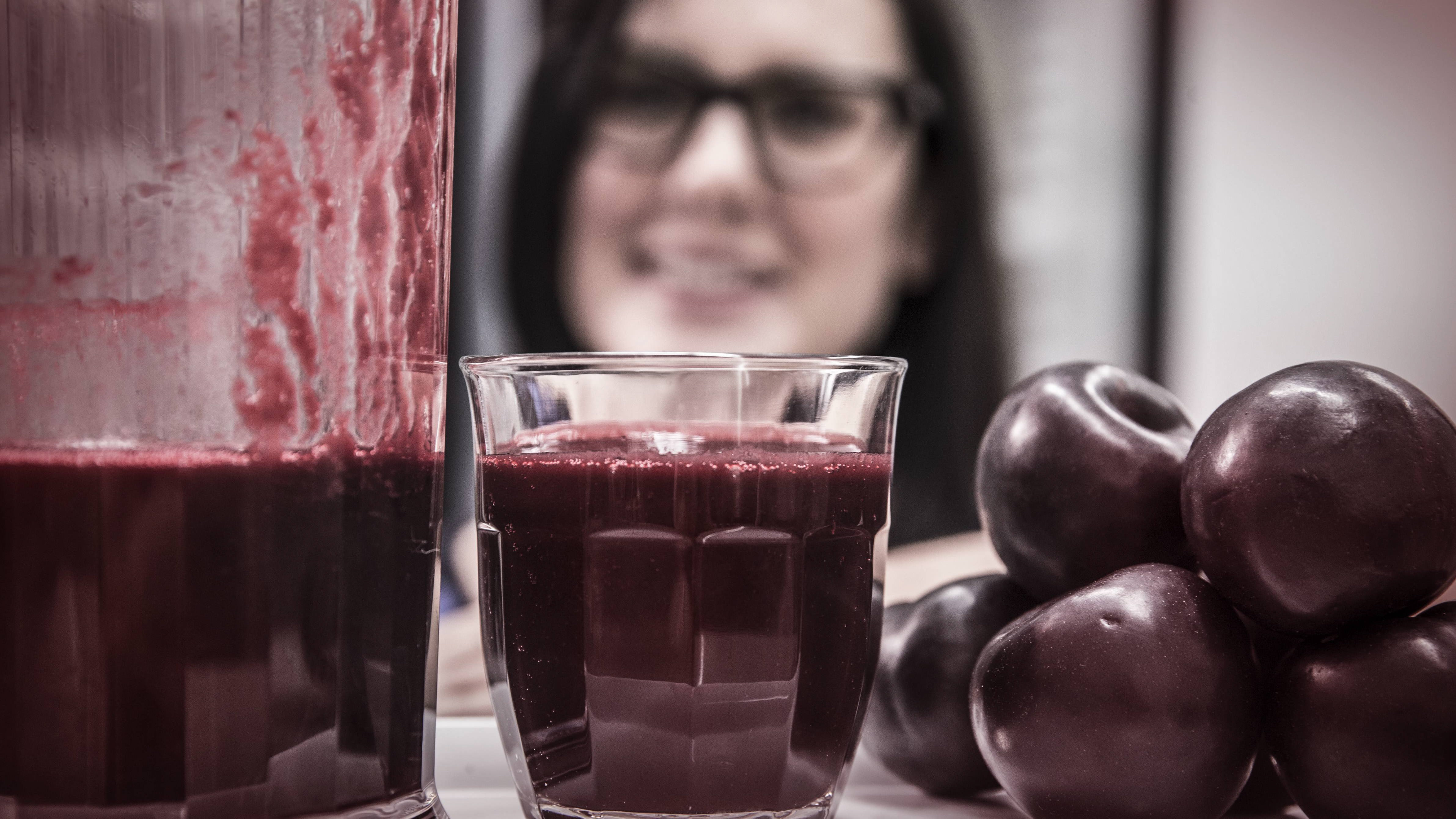[Music]
[PhD candidate Katherine Kent]: Our research team is looking at a group of compounds that are naturally occurring in fruits and vegetables called Flavonoids. And we're particularly interested in one type of Flavonoid called Anthocyanin.
[Music]
[PhD candidate Katherine Kent]: We used to believe that anthocyanins acted solely as antioxidants and by reducing inflammation in the body and scavenging free radicals. But more recently research is showing that they actually act in a myriad other ways by increasing blood flow to the brain and our improving processes associated with learning and memory. Anthocyanins provide the purple and red pigmentation in fruits and vegetables and in the Queen Garnet Plum they are specifically concentrated in the skin but the flesh also provides up a significantly higher amount of anthocyanins than other plum varieties
[Associate Professor Karen Charlton]: This fruit is a new version of plum, the regular plum. Except it's a much darker and deeper fruit and has a very intense sweet flavour. And we're busy with an acute feeding study which means we ask participants both young and old to come in on two different occasions to the clinic here at IHMRI. And the participants drink the Queen Garnet Plum fruit juice. And the whole purpose of this acute study is that we want to understand better and the uptake in the metabolism of the bioactive components that are found in this new plum. But certainly in terms of this particular compound called anthocyanin. This fruit packs a punch and one glass a day is probably and going to meet or exceed the potential benefits from eating a diet that is rich in fruits and vegetables.
[Music]
[PhD candidate Katherine Kent]: So as a nutritionist it's really exciting to try and understand that normal fruits and vegetables can actually have significant impact on health outcomes. And we're really excited to investigate this further in another fruit variety which is the Queen Garnet Plum.
[Music]
